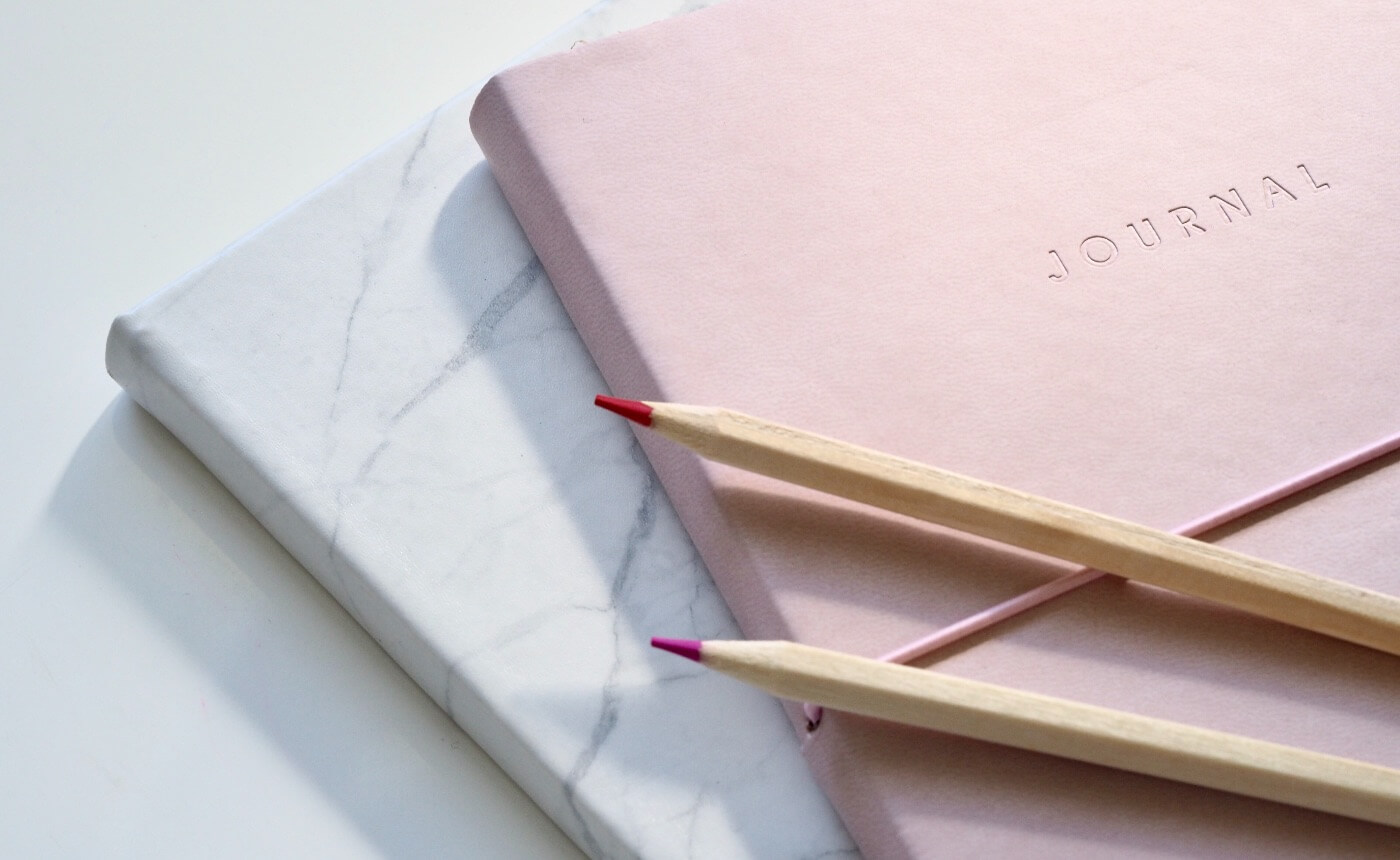With schools, colleges and non-essential places of work closed for six weeks, and with depression and suicide rates rising due to COVID 19, we need to look after each other and encourage self-care amongst our friends, family and within our local communities.
To help cope with lockdown, I began to record my days in daily journal entries. I started with the hope of journaling consistently, for one whole year, and to also to give myself a few minutes to reflect on the day. The aim was to find peace, and let my emotions and frustrations go so I could wake up feeling more refreshed and able to move onto the next day. I’d never considered journaling before, I thought it was a little cringe until I saw an old school friend share how she starts and ends her day with journaling. On the same day, YouTube suggested Nayna Florence’s video titled, ‘a day at home | reflecting, opening up, setting intentions’. She shared a passage from her journal with her viewers and I took that as a sign to start journaling.
I plan on re-reading all of my entries at the end of 2021 and then burning my notebook, to try and let go. I have a lot of repressed thoughts and emotions that I didn’t want to burden my close friends and family with. Even though I know they’d always be willing to lend their ear and give me a shoulder to cry on, I felt it was finally time to start having raw conversations with myself to see how open I could be with my subconscious mind.
But where would I start?, I asked myself; but luckily I am one of those people who has a drawer full of unused stationery. I rummaged through it and found a 99p notebook that I had bought in Home Bargains last summer and every morning, I would write. There are some days when I write down multiple entries because there are so many thoughts running through my head and I try my best to take advantage of the moments I feel very reflective and eager to dive into childhood traumas and unpack the impact they have had on my adult life.
Journaling has become a permanent addition to my daily self-care routine. Just before bed, I light a candle and let my thoughts from the day flow on the page. As I mentioned earlier, I aim to document the full 365 days, read it back and then burn it, leaving those thoughts and feelings trapped in the year. Journaling has been a freeing experience thus far and has played a huge role in keeping my mental health intact throughout lockdown.
What Can Journaling Do For You?
Clarify Your Thoughts And Feelings
You know when you’re feeling down but you’re not sure how to articulate the jumble of thoughts in your head to another person? Take a couple of minutes to jot down your jumble of thoughts, you don’t need to edit them, watch your tone or consider how the other person is going to take your thoughts as you’re the only one who is going to read this entry.
Manage And Reduce Your Stress
Write about your anger, sadness, failures and all of the emotions that are a result of pain instead of allowing them to weigh down on your chest, you will feel calmer and at peace with the situation.
Know Yourself Better
This is my favourite thing about journaling, it encourages self-awareness and you build a better relationship with your emotional wellbeing. Once you understand your needs, you can start to take care of yourself.
Before I started journaling, I had no idea where to start. What do you write about? Do I need to write a few sentences? An essay? There’s lots of different advice across the internet and it can be difficult to know what the right way to journal is. I’m sorry to disappoint you but there is no right way to journal, how you chose to journal should be a personal decision and based on the best way for you to get your emotions out in the most calming way possible. Take me for example, I’m a huge perfectionist so I knew a bullet journal wasn’t for me, I would spend more time setting up the pages, wanting the links and page headers to be perfectly symmetrical that it would take away from the calming aspect of journaling so I settled for a notebook and daily prompts. Before bed, I decide on a topic I would like to explore the following morning and I give myself 5-10 minutes to reflect before I start my day.
I end my day with gratitude prompts in my gratitude journal. Gratitude is said to rewire your brain, it activates the parts of your brain associated with dopamine, the neurotransmitter associated with happiness. In this second journal, I write what I am thankful for, things from the day that made me smile and three things that I want to remember about the day. Even on my bad days, I try to find positivity even the tiniest moment from your day, for example, how I felt after my daily walk, it helps me to focus on gratitude.
With daily gratitude and reflection, your life will change. Think of journaling like a journey, at the beginning you will feel lost and without direction and over time, you will become more positive, self-aware and the best version of yourself.

